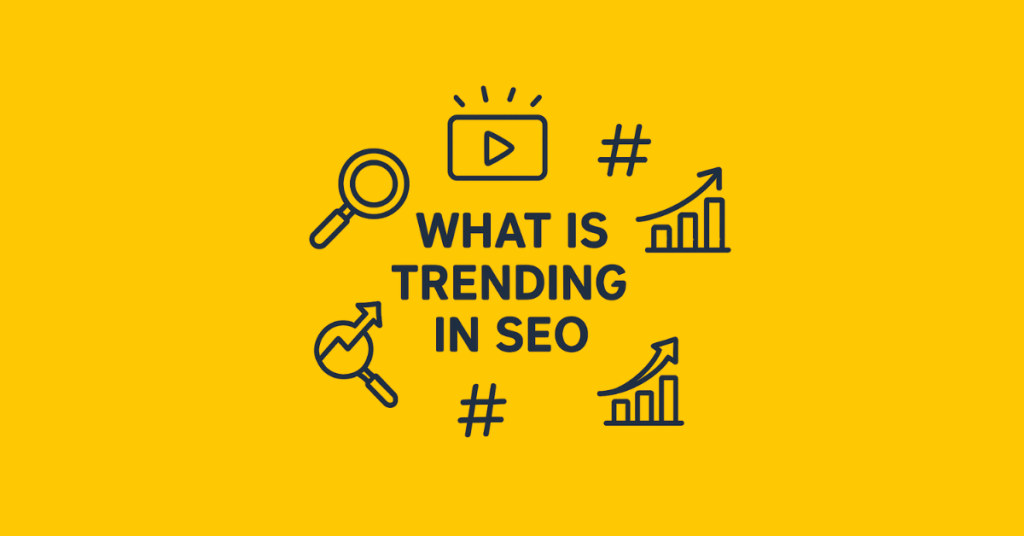If there’s one constant in the world of SEO, it’s change. As someone deeply immersed in search engine optimization, I’ve witnessed how rapidly this field evolves.
But even by SEO standards, the pace of transformation heading into 2025 is unprecedented.
Integrating AI into search has accelerated changes that might have taken a decade to materialize. From AI Overviews dominating results to shifting traffic metrics, we’re experiencing a fundamental reimagining of what search looks like.
For businesses and marketers, staying ahead of these SEO trends is important; it’s essential for online visibility and success in 2025.
Key Takeaways and Preparing for SEO in 2025
- Optimize for AI-powered systems while maintaining human expertise
- Build genuine E-E-A-T through experience-driven, original content
- Focus on user intent rather than just keywords
With the SEO landscape evolving so rapidly, staying agile and prioritizing continuous learning has never been more critical. Success in 2025 requires technical skills and a deep understanding of how users search and what they’re looking for.
Key SEO Trends for 2025 To Follow
The SEO landscape is evolving faster than ever, with several major shifts transforming how we approach search optimization. Here are the key trends that will define SEO in 2025:
1. AI Dominance in Search
AI has fundamentally altered the search experience, with Google’s AI Overviews (formerly SGE) leading the charge. These AI-generated summaries appear at the top of search results for approximately 15-20% of queries, providing users with immediate answers pulled from multiple sources across the web.
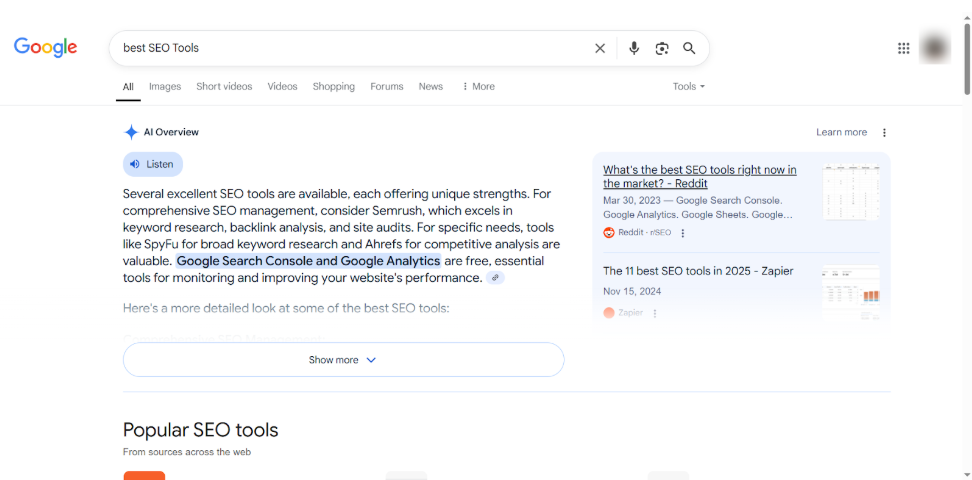
What began as an experiment has become a core feature, with the prevalence of AI Overviews continuing to grow throughout 2024 and into 2025. For some information-heavy industries like business and technology, AI Overviews now appear in over a third of search results pages.
Beyond Google, alternative AI-powered search engines like Perplexity and ChatGPT’s search function are gaining traction, with referral traffic from these platforms increasing by 71% and 44%, respectively.
This marks the rise of Answer Engine Optimization (AEO), which requires adapting SEO strategies to ensure your content becomes a citable source for AI-generated responses.
How to approach this trend:
For SEO professionals, success in 2025 means optimizing not just for traditional search but for AI comprehension.
This includes structuring content for straightforward AI interpretation, developing clear topical authority, and creating content that offers unique value AI engines will want to reference.
2. E-E-A-T (Experience, Expertise, Authoritativeness, Trustworthiness)
In a world increasingly saturated with AI-generated content, Google has doubled down on the importance of E-E-A-T to evaluate content quality. Adding “Experience” to the previously known E-A-T framework emphasizes the value of first-hand, personal knowledge and practical expertise.
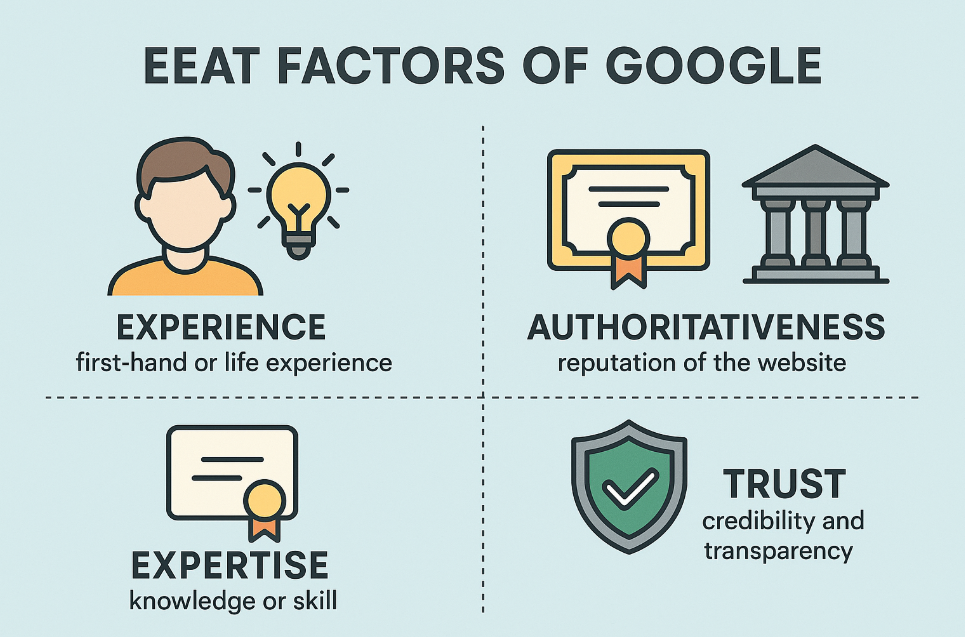
The leaked Google API document from 2024 confirmed what many SEO professionals suspected, that Google actively assesses content originality through what was revealed as an “OriginalContentScore.“
This means content that showcases genuine experience and unique insights will have a significant advantage over generic, AI-generated alternatives.
How to approach this trend:
To succeed in 2025, brands must demonstrate authentic expertise through author pages highlighting qualifications, subject matter expert contributions, and verifiable experience.
Content needs to go beyond surface-level explanations, incorporating real-world examples, original research, and unique perspectives that establish authority and build trust with both users and search engines.
3. Enhanced User-Centricity
The focus of SEO has shifted decisively from keywords to user needs and intent. Search engines have become remarkably sophisticated in understanding what users want, making user experience signals increasingly critical ranking factors.
Documents from Google’s antitrust case revealed that the search giant evaluates content quality using various engagement metrics, including click-through rates, dwell time, and interaction patterns.

This means optimizing user engagement is now as crucial as traditional on-page SEO factors.
How to approach this trend:
In 2025, successful SEO strategies will prioritize addressing users’ core needs, organizing content intuitively, and ensuring excellent technical performance.
Core Web Vitals remain crucial, with Largest Contentful Paint (LCP), Interaction to Next Paint (INP), and Cumulative Layout Shift (CLS) directly impacting both user experience and search rankings.
Mobile optimization and creating a coherent site structure that helps users easily find what they’re looking for are non-negotiables. SEO in 2025 means thinking less about algorithms and more about the humans on the other side of the screen.
4. Zero-Click Searches and SERP Features
The rise of zero-click searches, where users find their answer directly on the search results page without clicking through to a website, has fundamentally changed traffic patterns.
Example:
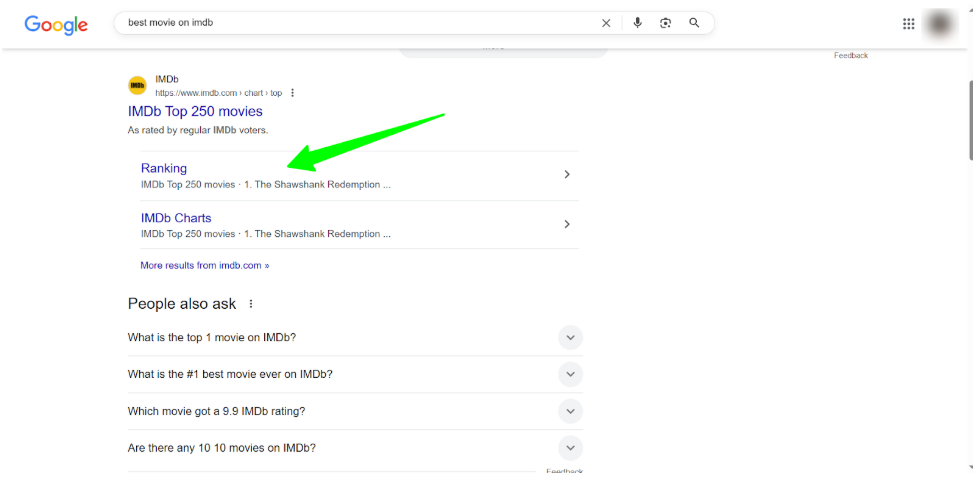
Recent studies show that nearly 60% of Google searches now end without a click to any website.
This trend, accelerated by AI Overviews, featured snippets, knowledge panels, and other SERP features, requires a strategic shift in how we measure SEO success.
How to approach this trend:
Rather than focusing exclusively on driving traffic, marketers need to optimize for visibility within these zero-click features and find ways to provide value even without a site visit.
For brands, this means creating content specifically structured to appear in featured snippets, using schema markup to enhance SERP presentation, and developing engaging multimedia content that stands out in rich results.
It also means rethinking success metrics, with impression data and brand visibility becoming as important as traditional traffic numbers.
5. Community Search Results and User-Generated Content
One of the most noticeable shifts in search results is the increasing prominence of community platforms like Reddit and Quora.
Google has significantly boosted the visibility of forum content, with Reddit becoming the third most visible website in search results. Since mid-2023, organic traffic has grown by a remarkable 603%.
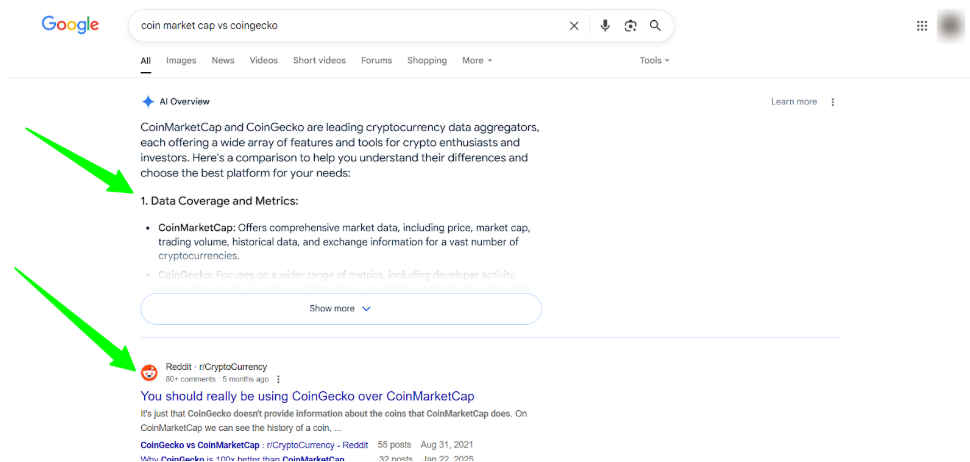
This trend reflects users’ desire for authentic, experience-based information rather than corporate content. People modify their search queries to include “Reddit” to find more genuine perspectives, showing a clear preference for real-world insights over potentially AI-generated or overly promotional content.
How to approach this trend:
For brands, this presents both challenges and opportunities. Direct engagement in relevant online communities is becoming an essential part of SEO strategy, not just for backlinks but for building authority and visibility where your audience is actively seeking information.
Creating spaces for authentic user-generated content on your platforms can also help capture this trend.
6. Technical SEO as a Foundation
While user-focused content is crucial, technical SEO remains the foundation for all other efforts.
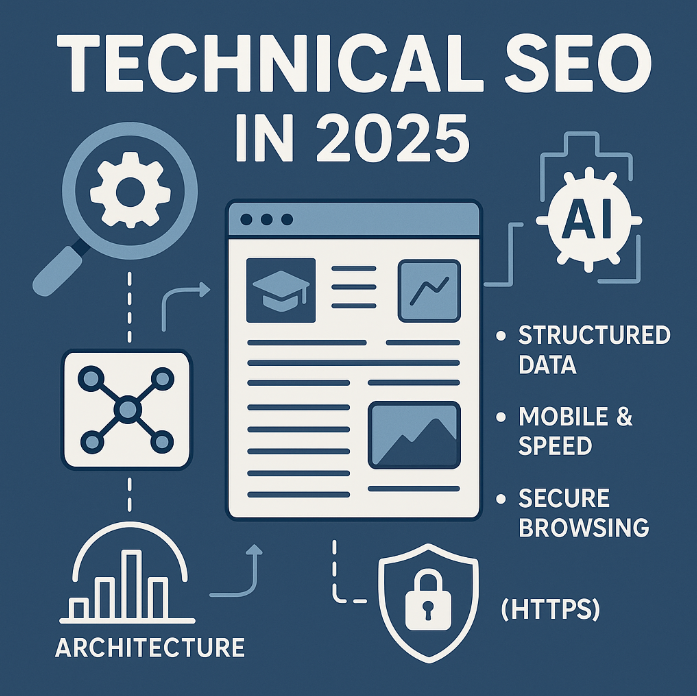
In 2025, technical optimization is becoming more sophisticated, with advanced schema markup, AI crawlability, and site architecture taking center stage.
Implementing structured data helps search engines better understand your content’s context and increases the likelihood of appearing in rich results. Mobile performance, site speed, and secure browsing (HTTPS) are vital ranking factors.
How to approach this trend:
In an AI-dominated search landscape, making your content easily accessible and comprehensible to crawlers becomes even more critical.
This includes proper HTML structure, explicit internal linking, and eliminating technical barriers that might prevent search engines from fully understanding your content.
To learn more about how to follow the current SEO trends, you can start with a Semrush Academy course. Check out my Semrush Academy learnings and how they helped me.
Avoid Doing This In SEO in 2025
While knowing what to do is important, understanding what to avoid can be equally valuable. Here are three approaches that will hurt your SEO efforts in 2025:
1. Relying Solely on AI-Generated Content
Despite the temptation to scale content production quickly, publishing purely AI-generated content without human editing or expertise will damage your search visibility.
Google’s algorithms are increasingly adept at identifying AI-created content that lacks originality and experience-based insights.
Instead, use AI as a collaborative tool for outlines, research assistance, and editing, while ensuring human expertise, original perspectives, and real-world experience remain central to your content strategy.
The winning approach combines AI efficiency with human creativity and authority.
2. Ignoring Community Engagement and Forum Visibility
Dismissing platforms like Reddit, Quora, and industry-specific forums means missing out on significant visibility and authority-building opportunities.
These platforms now dominate search results for many queries, and brands that fail to participate in these communities risk becoming invisible in key conversations.
Develop a strategy for authentic engagement in relevant online communities. This isn’t about spam or self-promotion but about providing value, sharing expertise, and building relationships in spaces where your audience already gathers.
3. Fixating on Traditional Traffic Metrics Alone
In the era of zero-click searches and AI Overviews, obsessing solely over website traffic numbers will lead to frustration and misguided strategy. If nearly 60% of searches end without a click, traditional traffic metrics tell only part of the story.
Expand your measurement approach to include impressions, brand search volume, featured snippet appearances, and conversion quality rather than just quantity. Success in 2025 means adapting your metrics to the new reality of search behavior.
Did you know: AI SEO agents are trending in 2025. Read more about what these agents are and how they can help in SEO.
Is SEO dead in 2025?
Contrary to the perennial declarations of SEO’s demise, search engine optimization isn’t dead in 2025; it’s evolving, as it always has.
What has died is the outdated algorithm-gaming approach to SEO that focused primarily on manipulating ranking factors rather than delivering value.
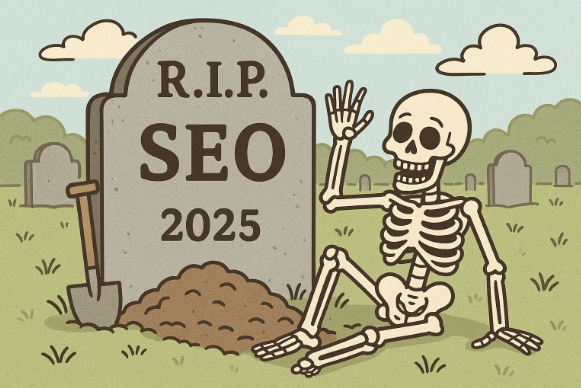
Today’s SEO requires a more sophisticated, multifaceted approach that encompasses traditional search engines, AI-powered platforms, community engagement, and user experience optimization.
The fundamentals remain, providing valuable content, optimizing technical elements, and building authority, but the execution has evolved significantly.
Studies show organic traffic continues to grow for many sites despite AI Overviews and zero-click challenges.
As long as people search for information online, regardless of platform or method, optimizing for discoverability will be valuable. SEO is transforming, but it remains a crucial channel for connecting with audiences at critical moments in their journey.
Level Up Your SEO:
Conclusion: AI is the Top SEO Trend in 2025
SEO in 2025 stands at a pivotal crossroads where AI integration, community-driven content, and evolving user behavior have transformed information discovery. These changes offer both challenges and opportunities for forward-thinking marketers.
Success will come to those who embrace these shifts by focusing on E-E-A-T principles, adapting to zero-click behaviors, engaging in community platforms, and using AI tools strategically.
The key to thriving isn’t any specific technical skill; it’s adaptability. The ability to pivot quickly and continuously learn will distinguish leaders in this space. Stay user-focused and quality-driven to navigate this new search landscape effectively.
FAQs
Create comprehensive, well-structured content with clear headings that directly answer specific questions in your expertise area. Include factual information with credible sources and establish your site as an authoritative resource in your niche.
Monitor brand awareness, SERP feature appearances, impression data, and conversion quality beyond traditional traffic metrics. Focus on engagement metrics like time on site for the traffic you do receive.
Focus on niche expertise, local relevance, and authentic experiences that larger competitors might lack. Showcase your unique knowledge and perspective while actively engaging in community platforms where your audience gathers.
Both remain essential, with technical SEO providing the foundation for discovery and indexing while quality content builds user engagement. Prioritize both aspects, as even exceptional content may struggle to rank without proper technical implementation.
Yes, but evolve your approach to focus on topics and intent clusters rather than individual terms. Use keyword research to identify user needs, then create content that thoroughly addresses those needs rather than just incorporating specific phrases.
Use AI for research, outlining, and editing assistance while ensuring human experts contribute unique insights and verification. Implement a workflow where AI handles initial tasks and subject matter experts add their specialized knowledge and perspective.






